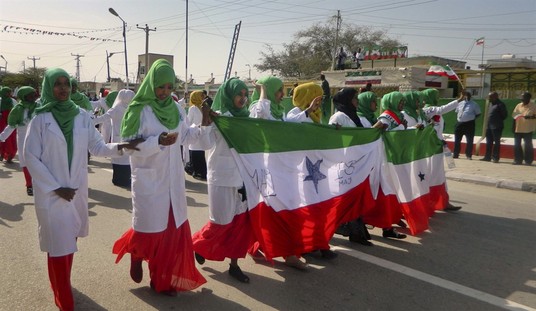As the smoke clears and the body count grows in Mumbai, in one of the most brazen and chilling terrorist attacks we’ve seen in a long time, the truth about the region becomes crystal clear: Pakistan is a cancer on its neighbors. And the narrow focus of the attacks has also made it clear that Pakistan, allowing its extremists to operate unchecked, is also emerging as a greater threat to us.
It pains me to say that. I’ve been fortunate to know good men in the Pakistani government who seemed to seriously give a damn about their country, forced to constantly fight the negative headlines in an attempt to lure industry to the country and show the side of the nation that embraces Western ideals. But those guys were in Pervez Musharraf’s crew, and now there’s a new sheriff in town.
Not implying, of course, in the traditional Western sense that this new sheriff has brought law and order. The ouster of Musharraf, which became a hot topic in our presidential campaign season, was supposed to enthrall lovers of democracy everywhere. But what has Asif Ali Zardari done since coming to power? Those are questions best answered by India and Afghanistan.
Even Pakistani media were acknowledging that the highly orchestrated, well-armed and well-trained attacks, with fighters coming across the sea from Karachi, indicated the involvement of Lashkar-e-Taiba, whose mouthpiece denied involvement in the attacks and amusingly went so far as to “demand an international inquiry” to clear their, ahem, good name. The group is branded as a terrorist organization by Pakistan, yet operates out of Lahore and trains fighters in Pakistan’s share of Kashmir. And anyone who thinks that this week’s carnage is another plug for Kashmiri independence needs to remember that the targets were Americans, Britons, and Jews. That’s good ol’ fashioned Islamic terrorism. That’s an act of war.
Lashkar-e-Taiba — no stranger to Indians who have felt the group’s wrath especially over the past few years — has a fatwa out on Pope Benedict XVI, is linked to the 2005 London bus and train bombings, and is cozy with the Taliban castaways trying to regain guerrilla dominance in Afghanistan. They operate off donations from the Pakistani community, and also, according to numerous reports, enjoy direct aid and training from Pakistan’s security services. In fact, the Pakistani government helped found the group in the 1980s to wage combat against the Indian presence in Kashmir. Now hosting al-Qaeda operatives at their training camps (as well as some Americans), you could say that this heightened relationship has brought new irrelevance to the debate over whether al-Qaeda is strong enough to strike the U.S. again.
On top of all this, Pakistan just inked a $7.6 billion bailout with the International Monetary Fund, but the IMF just said that the country still needs $20 billion to cover its deficit and debts in the coming years. Economic turmoil only aids the breeding of extremist ideologies and sympathies, and weakens confidence in the current government so as to give Islamists a greater foothold on the political scene.
So what does Pakistan do? Put its best troops along the border with India, of course, to encourage the festering of that old feud while terrorists run amok within its borders. Those same Musharraf officials assured me that their nuclear arsenal is under the same type of lock and key as the U.S. stockpile, but what happens if Islamist elements eventually gain control of the government and can hand that key off to any militant wing they wish?
Amrullah Saleh, Afghanistan’s spy chief, put it well in an interview on that country’s Tolo TV:
When we arrest a terrorist or an armed man in a clash or based on intelligence, they are not senior members of the al-Qaeda terrorist network or the Taliban group. Their main commanders are on the other side of the border, and we cannot take measures on the other side of the Durand Line. … The full defeat of terrorism requires that we either be strong enough to seal and properly protect our borders, or it requires that the strategy of the coalition forces towards Pakistan should change. … But the system in Pakistan has no political determination to eliminate these elements and forces.
Out of the longstanding tussle for Kashmir, Pakistan unleashed the evil likely responsible for storming through the streets of Mumbai, breaking into hospitals to shoot patients, spewing gunfire on train commuters, and attacking any location where Westerners and Jews may be — after all, why should the jihad stop at India?
Out of its inaction against Islamic extremists, when politicians put personal preservation before the most crucial fight of our time, Pakistan has chosen to bed with the terrorists. There should be no complaints about their sovereignty being encroached by unmanned U.S. drones when they’ve molded and aided such a danger to the rest of the world, a terrorist group with the power and government support to pick up where al-Qaeda left off.









Join the conversation as a VIP Member